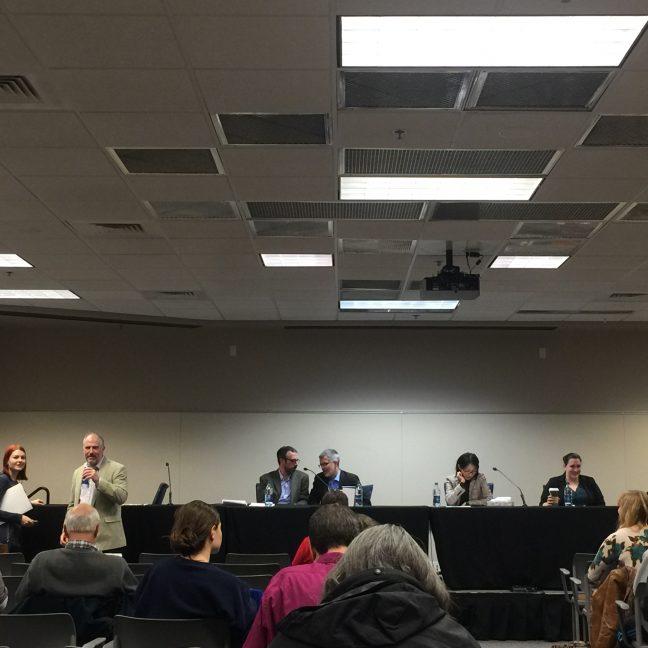A panel of University of Wisconsin experts hosted by the Election Research Center discussed the impact of Russian influence in U.S. elections Tuesday.
Professor of political science and director of the ERC Barry Burden highlighted that each state conducts its own affairs when it comes to voting either electronically or on paper ballots, and that evidence of Russian tampering with these election systems are zero.
But he said there are real worries for the next election concerning the possible tampering with these systems.
Professor of political science Scott Gehlbach said the formation of the Internet Research Agency in Russia was established to look into manipulating social media to influence domestic elections in Russia, not election systems themselves.
“The traditional Kremlin strategy focused on broadcast media that was directly controlled by the state or Kremlin friendly business men,” Gehlbach said. “But in Russia there is no widespread blocking of websites like in China and there is no systematic attempts to try and control what people saw online.”
Professor of political science and journalism Young Mie Kim spoke about her research about robot controlled accounts that used disguised identities on social media.
Kim and post-doctoral fellow Megan Metzger, who both work on the Wisconsin Russia Project, both agreed the Russian use of digital strategies to influence elections abroad is cutting edge.
“There are a number of ways to disguise yourself online, whether you use generic names or using political activist group names that have not been active for years,” Kim said.
All panelists agreed the full extent of the Russian influence on past elections and on future elections is unknown at this time, but that there are real concerns of infiltration for future elections.
While Russia was not successful at the physical polls and in the election systems, they were successful on social media, and throughout the years influencing other elections in France, Germany and many other places Metzger said.
“Russians have figured out what worked in 2016, and are preparing to use those strategies in 2018,” Burden said.


